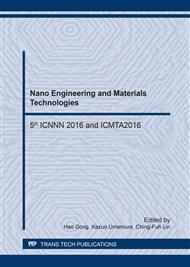p.111
p.117
p.122
p.128
p.133
p.138
p.145
p.153
p.159
Greenhouse Gases Reduction Assessment from Energy Efficiency Improvement: Case Study of Power Generation and Distribution
Abstract:
Electricity industry is one of the most important industries that contributes to Thailand’s economic growth. Power generation requires a huge amount of energy and emits a great number of greenhouse gas emission. Reducing energy consumption by improving its efficiency will be beneficial in both economic and environmental aspect. In this study, ten measures related to power generation and distribution system were assessed and analyzed its emission reduction via clean development mechanism and evaluated its cost effectiveness by using the net present value method. The findings revealed that changing a burner with better efficiency was the best implemented measure providing a great point not only on total energy saving but also on gross emission reduction and on earning back the investment. The results in term of intensity of energy saving and emission reduction, however, demonstrated that replacing an old transformer with a new high efficiency one was the most effective measure because using it for a long time period results in high value of no load loss. The information regarding the potential of greenhouse gas emission reduction on the energy efficiency improvement of each measure would be a useful information for decision makers or other parties in power sector to understanding and planning the suitable strategies in the future.
Info:
Periodical:
Pages:
133-137
DOI:
Citation:
Online since:
March 2017
Price:
Сopyright:
© 2017 Trans Tech Publications Ltd. All Rights Reserved
Share:
Citation:


